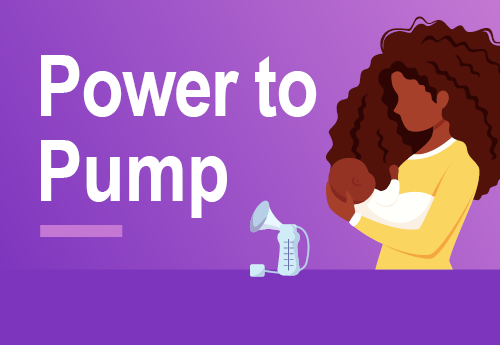 Since 2010, the Fair Labor Standards Act has provided covered employees with the right to pump breast milk at work as needed, in a private space, for up to one year after a child’s birth. In December 2022, President Biden signed the PUMP Act into law, which expanded these critical worker protections to millions of additional workers.
Since 2010, the Fair Labor Standards Act has provided covered employees with the right to pump breast milk at work as needed, in a private space, for up to one year after a child’s birth. In December 2022, President Biden signed the PUMP Act into law, which expanded these critical worker protections to millions of additional workers.
As we celebrate National Breastfeeding Month, the Wage and Hour Division is proud to support these new workplace rights for countless teachers, nurses, home care workers, farm workers, truck and taxi drivers, managers and other professionals.
The PUMP Act ensures that the roughly 1 in 4 working women of childbearing age who didn’t previously have these protections now have the right to break time and a private space to express breast milk for their nursing child.
The PUMP Act’s extension of the right to pump at work for millions more workers is vital to working parents. In 2022, more than 76 million women were in the U.S. labor force. And they’re most likely to give birth between the ages of 25 to 34, when their labor force participation rate is highest — at 77.6%. Choosing whether, when and how long to breastfeed is a deeply personal choice, and one that all working parents should be able to make without fear of workplace discrimination, retaliation or job loss. Research shows that when women have enforceable rights to break time and private space to pump, they are better able to continue breastfeeding if they so choose. The PUMP Act will contribute to better outcomes and greater peace of mind for workers who choose to breastfeed their children and affords them the dignity they deserve.
The PUMP Act also provides meaningful remedies to hold employers accountable for violating workers’ rights. Depending on the nature of the violation, remedies may include, but are not limited to:
- Reinstating an employee who was illegally fired,
- Granting a promotion that was illegally denied, and
- Restoring lost wages — and an additional, equal amount as liquidated damages.
It’s also important that workers and employers understand that the Fair Labor Standards Act protects workers from discrimination or retaliation when they question employer practices or assert their rights to pump at work.
Since the PUMP Act’s enactment, we’ve been spreading the word about its benefits and requirements to workers, employers, advocates and other stakeholders. We want to ensure employers receive compliance assistance and we’ll continue engaging with employers and industry to share resources and promote best practices. We developed a PUMP Act webinar and collaborated with the Equal Employment Opportunity Commission and Women’s Bureau to provide several maternal health webinars throughout the year. In addition, our staff has participated in nearly 200 outreach events to share PUMP Act information with more than 16,000 people nationwide in 2023.
As the nation observes National Breastfeeding Month, we encourage pregnant and nursing workers, employers and others to use our free resources on the rights of nursing employees to pump at work, including employee rights cards, privacy signs, answers to frequently asked questions and more. We want all nursing workers to know about – and use – their power to pump.
Jessica Looman is the principal deputy administrator for the Department of Labor's Wage and Hour Division. Follow the division on LinkedIn and on Twitter at @WHD_DOL.

 U.S. Department of Labor Blog
U.S. Department of Labor Blog






